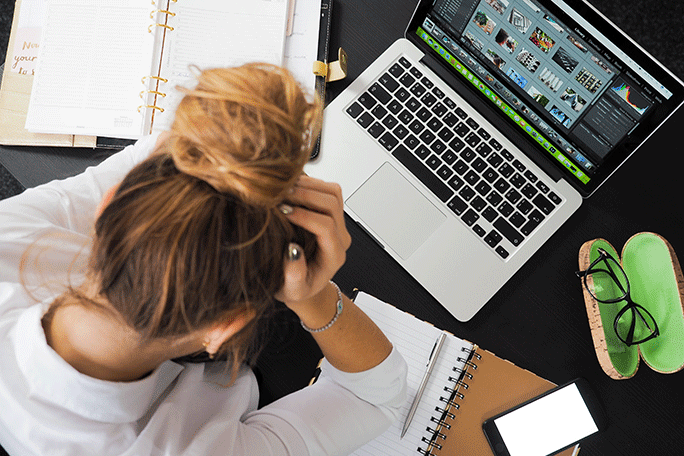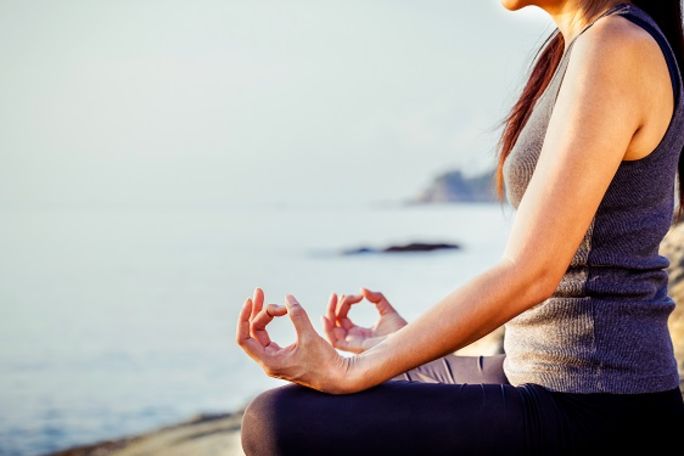Stress is one of the risks of everyday life
From what we're doing on a day-to-day basis to those important moments in our life, it seems that stress plays a constant role in our everyday life. And let's be honest, we've all used "stress" at some point to describe how we're feeling when faced with a difficult, tense, worrying or anxious situation.
Stressed by the workplace, our relationships or our lack of time, there are plenty of reasons why we can fall into a state of anxiety. More often than not, this can result in physical and psycological consequences.
Not only has stress been linked to memory and concentration loss, it can also make your muscles tense, lead to sleepless nights, excessive weight gain or loss, nervousness, apathy and premature ageing.
You may think feeling stressed is just a phase but it can serious consequences. So instead of turning a blind eye to this modern day affliction, take a more proactive approach and learn how to manage stress.
Causes of stress and how to manage it
Put simply, when you feel stressed your body is reacting to pressure from a life event or situation. These feelings of being endangered or anxious cause your body to produce stress hormones, the main ones being cortisol and adrenaline. These, in turn, trigger a response known as 'fight or flight', which activate your immune system. This is not necessarily a bad thing, a little bit of stress in a short period can help you focus (such as in exams) or run faster (in a race). It's when you're unable to switch off this reaction that stress becomes a problem.

Look out for physical signs of stress
So how do you spot the signs?
Well, firstly take stock of how you're feeling. Are you hungrier or more tired than usual? Are you finding it difficult concentrating on the task at hand or is your body clock taking a hammering? Spend some time noting down any changes you've noticed over the past few months.
Secondly, think about how to deal with those changes. Are there any actionable things you can do to calm yourself down. Such as eating three solid meals a day or calling a friend when you need to talk. If you want to relax, go for a walk or find an exercise class that you enjoy and can stick to. In other words, try to do what your body tells you to.
Get active regularly
One of the best ways to reduce stress is to get active. Physical activity is known to help those suffering with all types of stress, reducing anxiety and the symptoms of mild depression. But be wise about what you choose to do.
Relax your body, relax your mind
If you are tense, choose low-intensity activity, such as cycling or walking. All it takes is dedicating 30 minutes a day on a regular basis to help you relax and lower your overall stress levels.
Work up a sweat to feel better
Activities with a higher level of intensity are perfect when you're feeling angry, frustrated and powerlessness. More often than not, they can also help improve your self-esteem. Don't be afraid of setting objectives and goals around these activities. Not only will a faster-paced session get your heart pumping, but you'll also produce a hormone called noradrenaline, which is associated with combating depression. The result is you'll feel better from the inside out.
Make friends while moving forwards
Training in a group, either in the gym or outdoors, is also an excellent way of sharing positive experiences, achieving results together, letting off steam and simply enjoying some time in the company of others.
Find your happy through sport
Sport and getting active is known to increase the levels of endorphins in the brain. Otherwise known as 'happy hormones', these have a narcotic effect which induces feelings of pleasure and wellbeing.
Meditation and breathing techniques to combat stress
Finally, for the best results, combine your physical activity with meditation techniques. Take the time to concentrate on yourself through deep analysis of your body, passively analysing how you feel (e.g. heavy limbs, heat, breathing, regulating your heartbeat, etc.).
It’s good to remember the saying “a sound mind is a sound body”, as the two are strongly interlinked. Try to look after them both for a happy and active life.
This article has been provided courtesy of Technogym.
